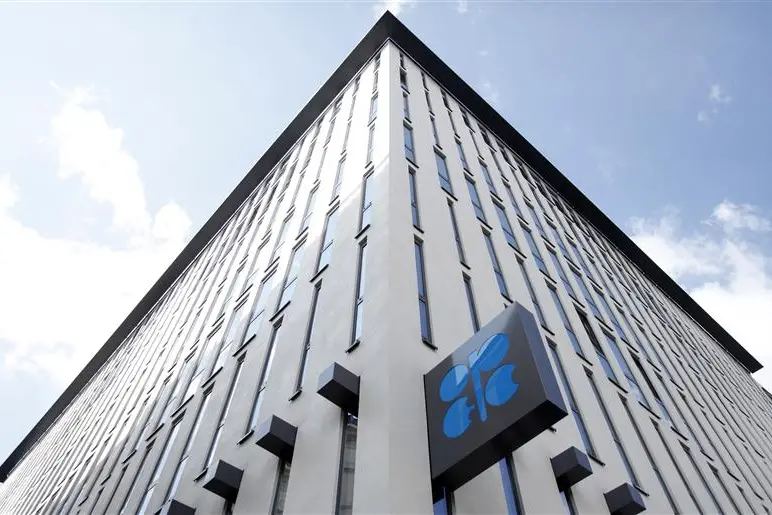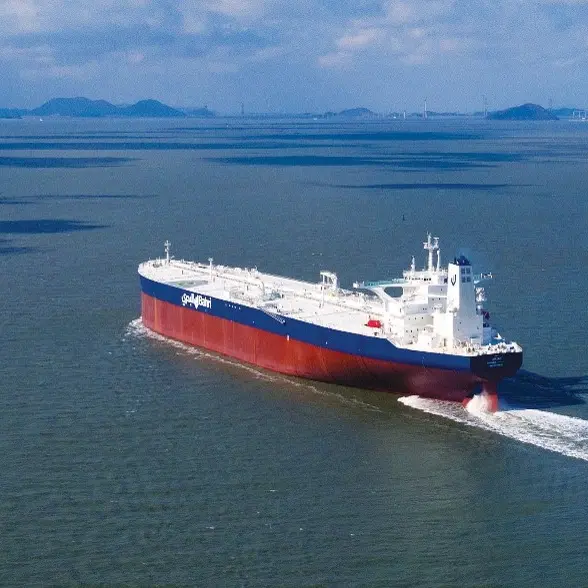PHOTO
By Amanda Cooper
LONDON, Sept 8 (Reuters) - The oil options market indicates traders are not betting big on OPEC and rival Russia clinching a meaningful deal this month to control output, although investors have turned more optimistic.
The oil price is heading for its first weekly rise in nearly a month after Saudi Arabia and Russia said on Monday they would work closely to monitor fundamentals and to recommend measures to ensure market stability, including a potential production freeze.
OPEC member countries and Russia will meet on the sidelines of the International Energy Forum in Algiers later this month and have signalled a freeze could be on the agenda.
The initial $2.50 gain in oil to a high of $49.40 a barrel after the Saudi-Russia news was short-lived, not least because of the failure of the two sides to reach any deal on output at a special meeting in Doha back in April.
But the derivatives market shows that investors could well be holding out for a deal further down the line and are displaying a lot more optimism, as demand and supply come closer to falling into balance.
The options market has seen a near-across-the-board rise in the implied volatility, a measure of the price, in buy options relative to sell options this week.
"The overall situation in oil, in my view, is stabilising. The stock draw should be with us as we head into the fourth quarter," said asset manager RCMA's chairman Doug King, whose Merchant fund runs some $220 million in commodities.
"One would say that there is a distinct chance in the next six months that we do get into some of the inventory, which would act as a catalyst for investors to increase exposure to the oil market"
When supply is expected to outstrip demand in the longer term, buy, or "call" options tend to be cheaper than sell, or "put" options as investors generally bet on the greater likelihood of oil prices falling rather than rising.
Puts are still pricier than calls, but by far less than they were just a couple of weeks ago, particularly those that are said to be close-to-the-money, or likely to be profitable.
The premium of a put maturing in one month, around the time of the Algiers meeting, is around 422 basis points more expensive than a call expiring at the same time, compared with 550 basis points a week ago.
DOHA REDUX
A major sticking point at Doha was getting Iran to join any group initiative on production.
Iran has said that while it supports joint efforts to stabilise the market, it will not freeze production until its own output reaches pre-sanctions levels of around 4 million barrels per day, from an estimated 3.6-3.8 million bpd now.
"The timeframe to reach any agreement to freeze is not necessarily in September. It will need to include Iran and that will be more likely to be at the end of the first quarter of next year," Petromatrix strategist Olivier Jakob said.
For puts maturing in May next year, when a supply agreement might theoretically materialise, their premium over calls has fallen to 570 basis points from 600 basis points last week.
Money managers, who in early August had built the largest short position in crude futures since the start of the year, have now cut those bets in half.
"Rebalancing is definitely taking place, to some degree or another. It's most definitely seen in the European market ... where inventories really have been coming down a great deal since the beginning of the year," said Christian Gerlach, who helps run around $350 million in commodity-related funds for Swiss & Global Asset Management, part of Julius Baer.
OPEC and Russia are pumping at, or close to, record rates, while U.S. production has started to pick up after months of decline, making investors wary about the effectiveness of a freeze, especially given uncertainty over the global economy.
Regardless of whether the market believes there could be any freeze, regular verbal intervention is paying off.
From the first whispers of possible coordination in February, the price has risen by 51 percent and the premium of oil for delivery by December 2017 over that for December 2016 has slimmed down to $3.60, from closer to $5 a month ago.
The International Energy Agency believes the market will show no oversupply over the second half of 2016.
"We have no real spare capacity in OPEC at all. It's 'full blast'," RCMA's King said.
"The stock situation gives a slightly false comfort just because there is no capacity spare around the world apart from U.S. shale and the question everyone will want answering is, at what price does this new supply meaningfully reappear"
(Reporting by Amanda Cooper; Editing by Dale Hudson) ((amanda.cooper@thomsonreuters.com; +442075423424; Reuters Messaging: amanda.cooper.thomsonreuters.com@reuters.net))
LONDON, Sept 8 (Reuters) - The oil options market indicates traders are not betting big on OPEC and rival Russia clinching a meaningful deal this month to control output, although investors have turned more optimistic.
The oil price is heading for its first weekly rise in nearly a month after Saudi Arabia and Russia said on Monday they would work closely to monitor fundamentals and to recommend measures to ensure market stability, including a potential production freeze.
OPEC member countries and Russia will meet on the sidelines of the International Energy Forum in Algiers later this month and have signalled a freeze could be on the agenda.
The initial $2.50 gain in oil to a high of $49.40 a barrel after the Saudi-Russia news was short-lived, not least because of the failure of the two sides to reach any deal on output at a special meeting in Doha back in April.
But the derivatives market shows that investors could well be holding out for a deal further down the line and are displaying a lot more optimism, as demand and supply come closer to falling into balance.
The options market has seen a near-across-the-board rise in the implied volatility, a measure of the price, in buy options relative to sell options this week.
"The overall situation in oil, in my view, is stabilising. The stock draw should be with us as we head into the fourth quarter," said asset manager RCMA's chairman Doug King, whose Merchant fund runs some $220 million in commodities.
"One would say that there is a distinct chance in the next six months that we do get into some of the inventory, which would act as a catalyst for investors to increase exposure to the oil market"
When supply is expected to outstrip demand in the longer term, buy, or "call" options tend to be cheaper than sell, or "put" options as investors generally bet on the greater likelihood of oil prices falling rather than rising.
Puts are still pricier than calls, but by far less than they were just a couple of weeks ago, particularly those that are said to be close-to-the-money, or likely to be profitable.
The premium of a put maturing in one month, around the time of the Algiers meeting, is around 422 basis points more expensive than a call expiring at the same time, compared with 550 basis points a week ago.
DOHA REDUX
A major sticking point at Doha was getting Iran to join any group initiative on production.
Iran has said that while it supports joint efforts to stabilise the market, it will not freeze production until its own output reaches pre-sanctions levels of around 4 million barrels per day, from an estimated 3.6-3.8 million bpd now.
"The timeframe to reach any agreement to freeze is not necessarily in September. It will need to include Iran and that will be more likely to be at the end of the first quarter of next year," Petromatrix strategist Olivier Jakob said.
For puts maturing in May next year, when a supply agreement might theoretically materialise, their premium over calls has fallen to 570 basis points from 600 basis points last week.
Money managers, who in early August had built the largest short position in crude futures since the start of the year, have now cut those bets in half.
"Rebalancing is definitely taking place, to some degree or another. It's most definitely seen in the European market ... where inventories really have been coming down a great deal since the beginning of the year," said Christian Gerlach, who helps run around $350 million in commodity-related funds for Swiss & Global Asset Management, part of Julius Baer.
OPEC and Russia are pumping at, or close to, record rates, while U.S. production has started to pick up after months of decline, making investors wary about the effectiveness of a freeze, especially given uncertainty over the global economy.
Regardless of whether the market believes there could be any freeze, regular verbal intervention is paying off.
From the first whispers of possible coordination in February, the price has risen by 51 percent and the premium of oil for delivery by December 2017 over that for December 2016 has slimmed down to $3.60, from closer to $5 a month ago.
The International Energy Agency believes the market will show no oversupply over the second half of 2016.
"We have no real spare capacity in OPEC at all. It's 'full blast'," RCMA's King said.
"The stock situation gives a slightly false comfort just because there is no capacity spare around the world apart from U.S. shale and the question everyone will want answering is, at what price does this new supply meaningfully reappear"
(Reporting by Amanda Cooper; Editing by Dale Hudson) ((amanda.cooper@thomsonreuters.com; +442075423424; Reuters Messaging: amanda.cooper.thomsonreuters.com@reuters.net))





















